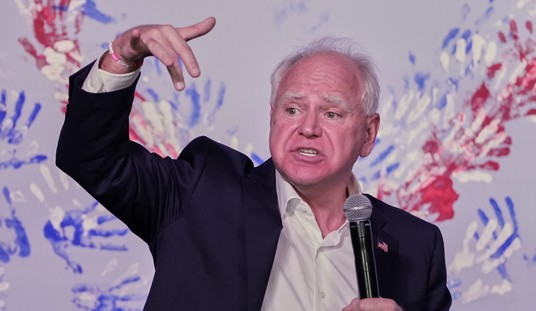Next week, the United Nations is planning a meeting of their International Telecommunications Union (which was founded way back when we were all still trying to coordinate over the telegraph) in Dubai, supposedly to update treaty arrangements or whatever it is these globalist bureaucracies spend our money doing. However, some of the world’s most devious actors (Russia, China, Iran, etcetera) intend to float plans that would restrict how the Internet functions over international borders. They’re all plans that cut off some of their citizens’ access to the outside world, i.e. help repressive regimes keep tighter controls over their people’s exposure to free-thinking ideas and information, which is all really great — if you happen to hate freedom and democracy.
Heritage explains why big, forbidding governments aren’t really fans of the rapid innovation and private competition the development of the Internet has spurred in the past couple decades, and a few of the ways in which they’re proposing cracking down on all that:
Some countries have proposed granting the ITU more authority over the Internet and making other changes purportedly for such goals as enhancing cybersecurity, reducing costs for developing-country consumers, and increasing investment by telecommunications providers. However, many of these seemingly benign proposals could undermine the Internet freedoms that are essential to spurring economic development and protecting human rights. …
Based on unofficial leaked reports, the proposals being considered for discussion at the WCIT are a hodge-podge of technocratic-sounding changes in the current ITRs. …
- A proposal by a coalition of Arab states would require national governments to “undertake appropriate measures, individually or in cooperation with other Member States,” to protect “confidence and security” in the Internet. … The sponsoring states argue that these powers would help them fight cybercrime, but they could also be used for censorship and political suppression.
- A Russian proposal would give member states equal rights in the allocation of domain names, potentially challenging the role of the U.S.-based Internet Corporation for Assigned Names and Numbers.
Both chambers of Congress already unanimously passed resolutions damning the trend of these perilous proposals earlier this year, and according to a State Department official on Thursday, the White House is following suit. Via the WFB:
“We will actively oppose the Russian proposal,” Terry Kramer, head of the U.S. delegation to a U.N. conference in Dubai, told reporters.
A Russian government proposal to amend a U.N. treaty at a meeting of the world body’s World Conference on International Telecommunications in Dubai next week contains a provision that calls for bringing “IP-based networks” under U.N. control. …
The Russian proposal to amend the treaty has the support of other non-democratic states such as China and Iran.
Kramer said in a conference call with news reporters that the Dubai conference is not supposed to be focused on Internet governance.
“If you look at the Russian proposal, it’s clearly focused on Internet governance,” he said. “It would basically move to governments the right to route traffic, to review content, and say that’s all a completely national matter—an extremely important precedent it would set for opening the doors, again, to more censorship.”
Good. Why we continue to provide the biggest hunk of funding for all of this nonsense is beyond me, but if that’s the case, I say we throw our weight around a little bit — and make our position on this freedom-crushing baloney inescapably clear.








Join the conversation as a VIP Member